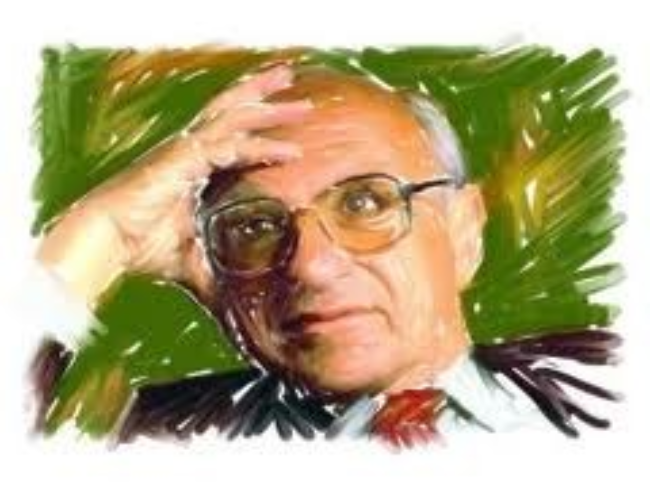
Leadership
Feedback is the breakfast of champions.
That’s a statement that author Ken Blanchard explains in sports terms. “Can you imagine,” asks Blanchard, “training for the Olympics with no one telling you how fast you ran or how high you jumped?”
The leadership application, of course, is that without feedback we cannot accurately assess reality. If we don’t know what we’re doing wrong, or what’s going wrong, we can’t fix it. This makes sense intellectually, but in reality, feedback can go down like a bowl of cold, lumpy oatmeal.
Today’s leaders face increasingly complex problems. No one person can have all of the answers. That’s why leaders of the 21st century must have the humility to encourage feedback. To step back and create space for others to show you your blind spots and help you make improvements that count.
Harvard Business Review contributors John Dame and Jeffrey Gedmin called this intellectual humility. “Without humility,” the authors argue, “you’re not able to learn.” Here are three principles of humility that will help put you in a feedback frame of mind:
1. Know what you don’t know. The higher you climb up the proverbial corporate ladder, the greater the temptation it is to believe that you are the smartest person in the room. But deep down, you know that you don’t have all of the answers. You may not even have all of the questions. Know when to defer and be open to learning from others.
2. Resist falling for your own publicity. Part of the leadership role is to maintain a positive outlook. Your confidence boosts that of your team and your customers. While it’s important to have a positive outlook, it’s just as important to correctly assess reality. Keep your spirits high, but your judgment at an even keel.
3. Never underestimate the competition. No matter how smart you are, how many hours you are willing to put in, or how creative you get, do not allow a residue of hubris to set into your culture. There is always competition for your customer’s attention.
The first task of any leader is to assess reality correctly. You can’t do that without having the feedback you need to make the necessary adjustments. Open yourself to feedback by having the humility to know your own limits, keep your ego in check, and resist the false comfort of complacency.
Question: What specific actions are you taking to remain humble as a leader?
Driven by the premise that excellence is the result of aligning people, purpose and performance, Center for Executive Excellence facilitates training in leading self, leading teams and leading organizations. To learn more, subscribe to receive CEE News!

Leadership
On Bloody Sunday, John Lewis wore a backpack. It carried fruit, a toothbrush, and two books. Lewis had expected to spend the night reading in jail. Instead, he spent it in the hospital after his skull was fractured from a police beating. He would carry the scars from that beating at age 25 for the rest of his life. He’d also carry out the rest of his life guided by the principles in the two books in his backpack that Sunday, March 7, 1965.
One book was The American Political Tradition, a reappraisal of this history of the United States written by Richard Hofstadter in 1948. The other book, also first published in 1948, was The Seven Storey Mountain, the autobiography of Catholic monk Thomas Merton and his journey to a life in Christ. It was Christ’s instruction to love thy neighbor that drew Lewis to Martin Luther King’s nonviolent message which they used to speak up against racial injustice in America.
How does a young man find the courage to sit before open hatred at lunch counters, and face police lines protected only by an ideal? In a word – love. The monk, Thomas Merton wrote,
Our job is to love others without stopping to inquire whether or not they are worthy. That is not our business and, in fact, it is nobody’s business. What we are asked to do is to love, and this love itself will render both ourselves and our neighbors worthy.
John Lewis left a legacy of love. Not a pollyannaish love, but a durable, tempered conviction that a belief in common humanity and the pursuit of equality will win in the end. “If we get it right here, in America, maybe, just maybe we can be the model for the rest of the world,” Lewis often said.
It’s hard not to judge others in this year triple underscored by racial, social, and political division. But doing so is what makes love so powerful. It’s value increased every time leaders like John Lewis endured physical blows and sacrifice in the name of equality. Lewis believed that America was worth the pain and sacrifice.
Lewis’ love filled him with irrepressible happiness despite all that he’d been through. His life is a monument to love. Now that his journey is over, his life is testimony to the power of love that speaks to us all. The political book in that backpack starts with a quote from the writer John Dos Passos:
In times of change and danger when there is a quicksand of fear under man’s reasoning, a sense of continuity with generations gone before can stretch like a lifeline across the scary present.
John Robert Lewis was that lifeline. His body will be put to rest, but his legacy of showing up, speaking out, and moving forward until, as Lewis said, “the revolution of 1776 is complete,” must carry on.
“If not us, then who? If not now, then when?” – John Lewis
Question: How can you use your platform to complete the revolution of 1776?
We have important work ahead of us as we stand up to racism, bias and inequity. Read an open letter our CEO wrote on our company’s commitment to shed light and work for justice.
![How 1 Simple New Year’s Resolution Will Help You Succeed]()
Emerging Leaders, Leadership, Purpose
In his book, When the Game Is Over, It All Goes Back in the Box, John Ortberg tells a story about his son. Ortberg says,
One day when my son was three, he had been working with a tape player for an hour or so. After a while he looked up at his mom and said, ‘Mom, you know what’s the trouble with life?’ His mom replied, ‘No I don’t. What’s the trouble with life?’ The three-year-old sitting on the floor, who had thoroughly reflected on both toy technology and the conditions of human existence, made a profound observation. ‘The trouble with life is that it doesn’t have a rewind button!’ Every day and every minute carries its own finality. Time is a non-renewable resource.”
(more…)
Leadership, People, Performance
For the past month everything around us has been changing. Temperatures are falling and the sun is setting earlier. Leaves are changing to vibrant reds and deep yellows. There’s no denying that fall is here and winter is just around the corner. As humans, we are hard wired to accept the inevitability of seasonal changes. Although we can manage the extreme weather changes of four seasons a year, we are not so adaptive when it comes to organizational change. (more…)

Leadership, Purpose
“The social responsibility of business is to increase its profits.” That statement was part of an article written by economist Milton Friedman for The New York Times Magazine in September 1970. In the article, Friedman argued that the more profits that were returned to shareholders, the more money shareholders could use to do social good. (more…)



